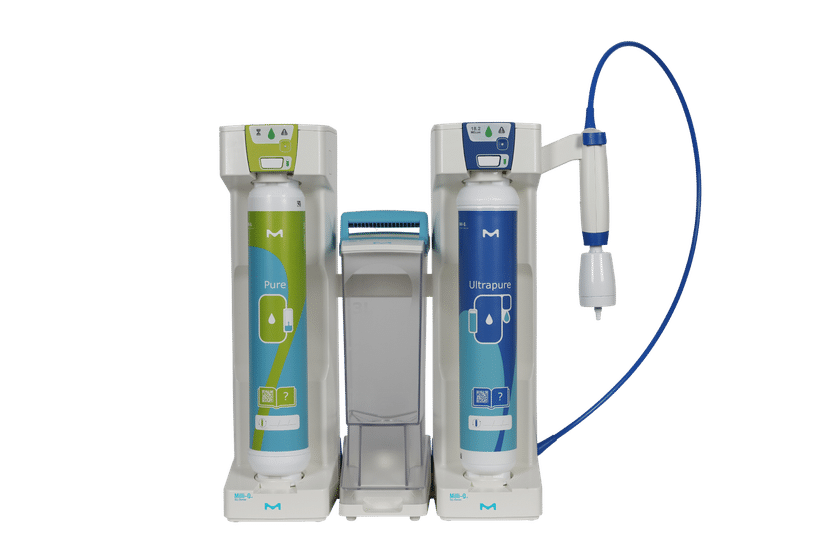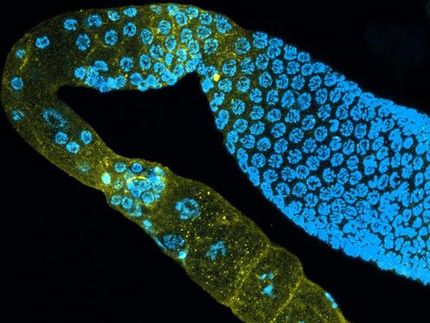Successful Pilot Study for Non-Invasive Prenatal Diagnostic Test to Determine Trisomy 21
At the moment, the only reliable way of diagnosing chromosomal irregularities during pregnancy is to use invasive prenatal methods. This causes miscarriage in about one per cent of these risky surgical procedures.
Scientists from the Center for Prenatal Diagnosis and Human Genetics, Kudamm-199, in Berlin have been working with scientists from GATC Biotech AG and LifeCodexx AG to develop a non-invasive diagnostic test based on Next Generation Sequencing which reliably detects a fetal trisomy 21 (Down syndrome). The test is based on the sequencing of cell free fetal DNA from the maternal blood, and in the foreseeable future it could become a no-risk alternative to the invasive prenatal examinations such as the analysis of amniotic fluid (amniocentesis) which are currently used.
The pilot study involved the development of an analytical method based on the publications by Chiu et al. which was verified with more than forty clinical samples. Analyses carried out with the Illumina Genome Analyzer IIx Next Generation Sequencing system unambiguously detected all eight positive samples. The test had a sensitivity and a specificity of 100%. The results were confirmed by conventional karyotyping.
“The results of the pilot study are very promising. From a clinical point of view, the test could be introduced relatively quickly for women with high-risk pregnancies, in particular, and used alongside the existing methods to detect genetic chromosomal abnormalities non-invasively,” says PD Dr. Markus Stumm from the Berlin Center for Prenatal Diagnosis, who presented the results of the pilot study in March during the Annual Conference of the German Society of Human Genetics in Regensburg/Germany.
“Prenatal diagnostics with multiplex sequencing are still very expensive. In order to drastically reduce costs in the near future, we are in the process of developing a method which allows the pooling of several samples for parallel analysis with the Illumina HiSeq2000 sequencing system,” says Peter Pohl, CEO of GATC Biotech AG and Head of the Supervisory Board of LifeCodexx AG.
“The method development will be concluded soon. The clinical validation study with at least 500 samples will then start immediately. We are very confident that this will also be successful. Our first prenatal diagnostic test could then be launched at the end of 2011,” said Dr. Michael Lutz, CEO of LifeCodexx AG.
The project was supported by BMBF funding from the ZimSolo and KMU-Innovativ programs.
Most read news
Other news from the department science

Get the life science industry in your inbox
By submitting this form you agree that LUMITOS AG will send you the newsletter(s) selected above by email. Your data will not be passed on to third parties. Your data will be stored and processed in accordance with our data protection regulations. LUMITOS may contact you by email for the purpose of advertising or market and opinion surveys. You can revoke your consent at any time without giving reasons to LUMITOS AG, Ernst-Augustin-Str. 2, 12489 Berlin, Germany or by e-mail at revoke@lumitos.com with effect for the future. In addition, each email contains a link to unsubscribe from the corresponding newsletter.
Most read news
More news from our other portals
Last viewed contents

Research on airway protective reflexes wins 2024 Eppendorf & Science Prize
Hospital_ship

Milli-Q® SQ 2Series | Water purification systems | Merck
Surgical_oncology
Second-generation Biofuels Heading Steadily towards Commercial Success, Asserts Frost & Sullivan



















































